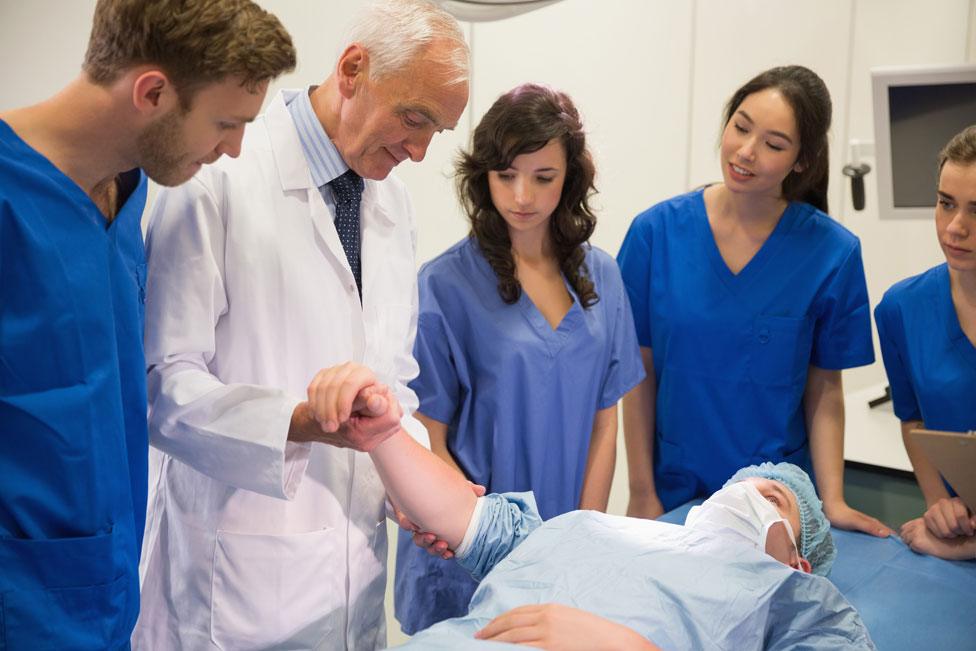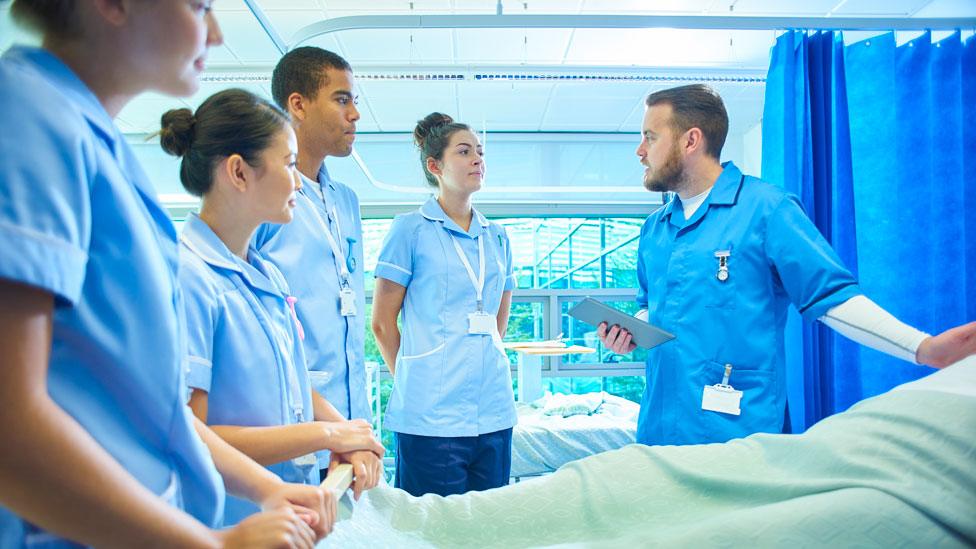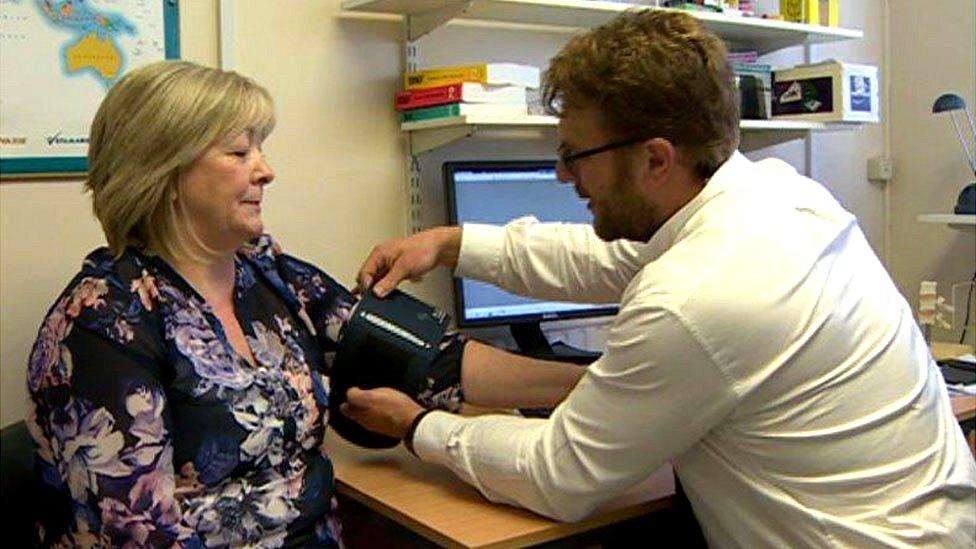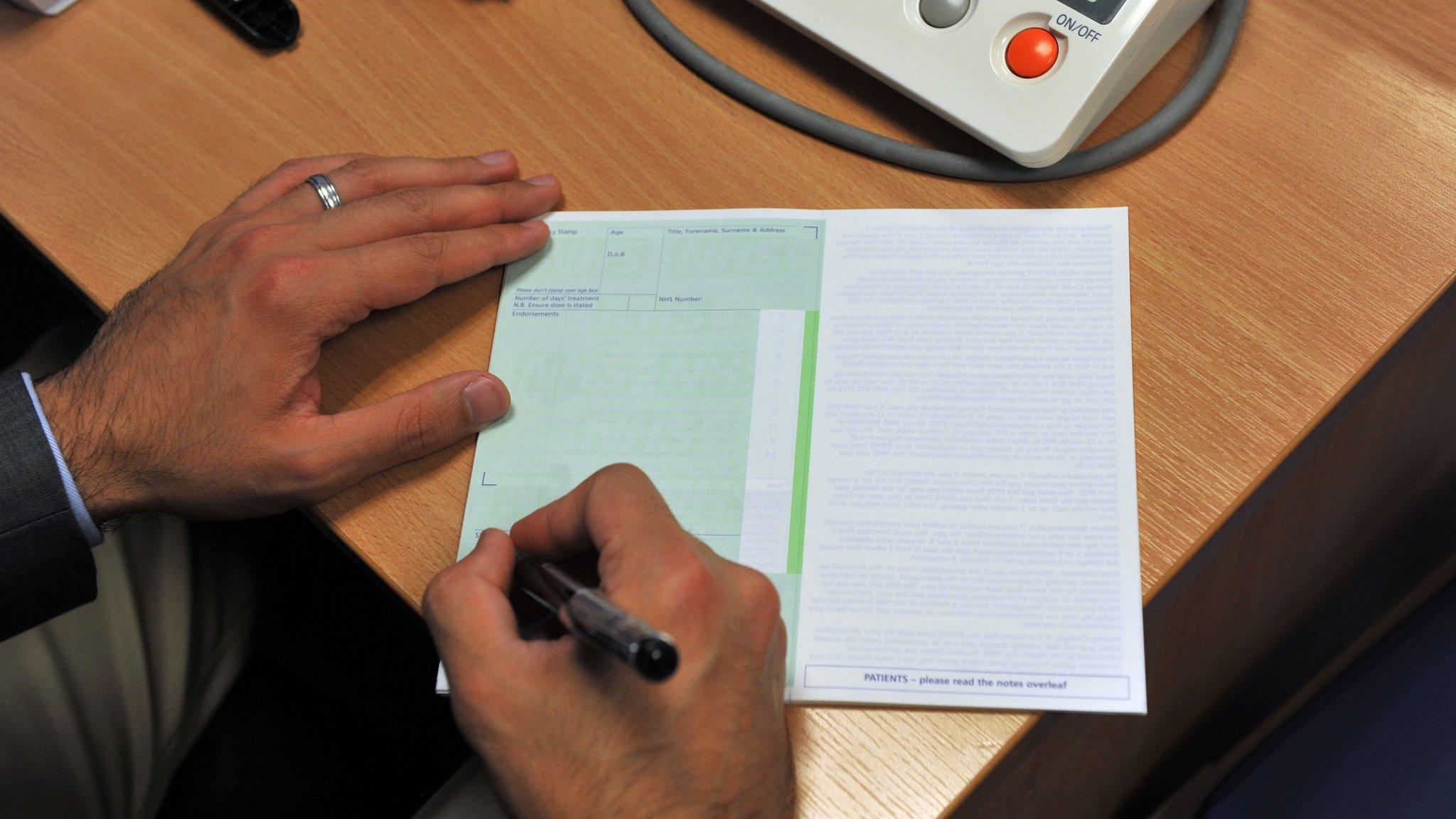'Clear case' for more medical student places in Wales
- Published

The committee wants universities to engage with schools at a much earlier stage to attract the next generation of medical students
The number of medical school places needs to increase, including in north Wales, a cross-party committee said.
There has been a drop of 14% in students from Wales training in medicine across the UK between 2015 and 2017.
Also only 30% of students in the two Welsh medical schools are from Wales.
Dr Dai Lloyd, chair of the Assembly's health committee said there was a "clear case for increasing medical school capacity within Wales".
The committee has been looking at the whole issue of medical recruitment in Wales and how best to fill vacancies.
It included support for students and the issue of work-life balance for medical staff.
It wants universities in Wales to do more to make sure students who achieve the necessary grades from Wales secure those places.
Despite some improvements, the number of Welsh students studying medicine is still lagging behind the other UK nations.
There are currently two medical schools providing undergraduate medical education in Wales - Cardiff and Swansea. The former also works in partnership with the universities in Bangor and Wrexham, with hospital placements in north Wales.
But there has been a drop of nearly 15% over the last two years in the number of Wales-based students applying to study medicine in the UK, a steeper decline than in other UK nations.
There is also a low number of Welsh medical students staying at home to study - and there is generally a tendency for students, once qualified, to stay to work in the area where they qualify.
Only 30% of Welsh medical school undergraduates were from Wales, compared to 80% in England and 55% in Scotland.
The committee wants the Welsh Government and the Wales Deanery, which is responsible for medical training, to look at key pressure areas.
It welcomed the Welsh Government's efforts to address recruitment issues, including the "train, work, live" campaign.
But it said there was still further work to be done to address "the wide range of factors that could attract new medical staff to Wales and retain the existing workforce."
The committee makes 16 recommendations in its report, including a new centre for medical education in Bangor.

The findings have been welcomed by medical bodies, who gave evidence to the committee's inquiry.
Vanessa Young, director of the Welsh NHS Confederation, which represents health boards, said working in Wales needed to be made as attractive as possible.
"This is a country that has so much to offer in terms of career prospects and lifestyle for those working or aspiring to work in health and social care," she said.
"Encouraging individuals to train in Wales so they are more likely to stay and pursue their careers here is key."
Dr Charlotte Jones, chair of BMA Cymru Wales's GP committee said it had previously highlighted concerns that recruitment challenges are often more acute in more rural parts of Wales.
"Therefore the committee's call to develop an action plan for rural and medical training and education is also to be welcomed," she said.
Dr Gareth Llewelyn, vice president of the Royal College of Physicians in Wales said: "Implementing these recommendations will need a drastic change in mind-set and our doctors are clear that we want to work with Welsh Government and NHS Wales to improve patient care and solve this workforce crisis."
The RCP are concerned about consultant vacancies. The committee's report points to a 6.8% vacancy rate across Wales in 2015.
"There are ongoing major trainee rota gaps in every one of our hospitals. This cannot continue as it impacts directly on the quality and efficiency of patient care."
- Published13 June 2017

- Published14 May 2017

- Published20 October 2016

- Published8 September 2016
